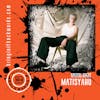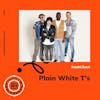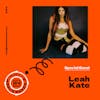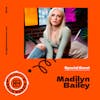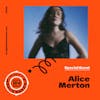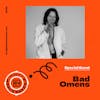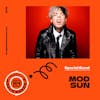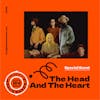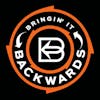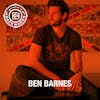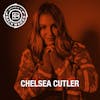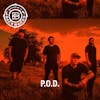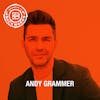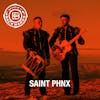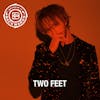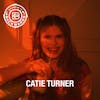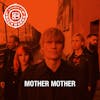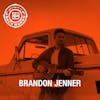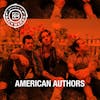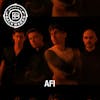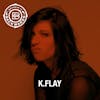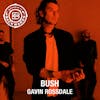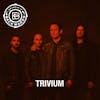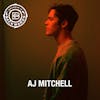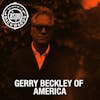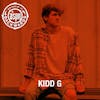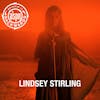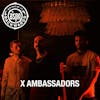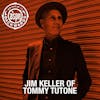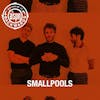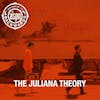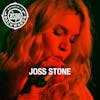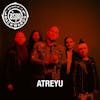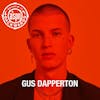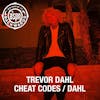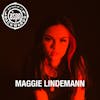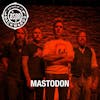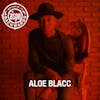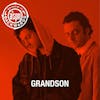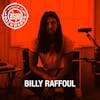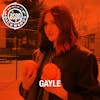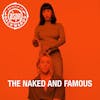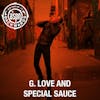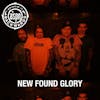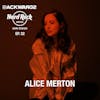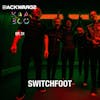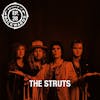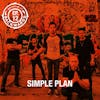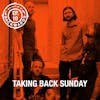Interview with Wallis Bird
We had the pleasure of interviewing Wallis Bird over Zoom video!
Irish-born, Wallis Bird is thrilled to share “The Power of a Word” the newest song to be released off her forthcoming album HANDS, due out May 27 via Mount Silver Records / Soundly...
We had the pleasure of interviewing Wallis Bird over Zoom video!
Irish-born, Wallis Bird is thrilled to share “The Power of a Word” the newest song to be released off her forthcoming album HANDS, due out May 27 via Mount Silver Records / Soundly Music.
“Power of the Word” follows the release of “What’s Wrong with Changing” and “Pretty Lies.”
Wallis tapped the famed Theodora Byrne Ensemble to create an incredibly powerful music video for her song “What’s Wrong With Changing. The Theodora Byrne Ensemble is an Irish contemporary mixed-voice choir comprised of a collective of over 50 singers from various musical backgrounds
HANDS finds BIRD turning the spotlight onto herself, raising issues that are sometimes far harder to confront, only to emerge optimistic and whole. Among these are issues of trust, alcohol abuse, stagnation, self-censorship, and self-improvement, some addressed through personal recollections of crucial moments accumulated over the last two years. Each, however, is delivered by a voice uncommonly blessed with joy, ingenuity, and empathy.
The front cover of the new album features a black and white photograph of a hand. A cursory look might not reveal anything unusual, but it only takes a moment to recognize it’s no ordinary hand. In the shadows, there’s a stump where the little finger should be, and something seems off about the other digits too. Some will understand its significance: they’ll have seen it strumming an upside-down, right-handed guitar, picking in unorthodox style, forming unconventional chords. The hand, you see, is WALLIS BIRD’s, and it’s there because, having spent much of her life trying to exist despite its restrictions, she’s reached a point where she recognizes that, in many ways, it’s always been vital to her lived reality. With this has come a realization of “who I am, what I am, and what I don’t want.” HANDS documents her subsequent process of change, and its consequences, with typically distinctive style, making it – hands down, naturally – one of the most honest albums you’ll hear at a time when honesty is at a premium.
We want to hear from you! Please email Tera@BringinitBackwards.com.
www.BringinitBackwards.com
#podcast #interview #bringinbackpod #WallisBird #Lgbtq #ThePowerOfAWord #WhatsWrongWithChanging #musicinterview #MusicPodcast #NewMusic #zoom
Listen & Subscribe to BiB
https://www.bringinitbackwards.com/follow/
Follow our podcast on Instagram and Twitter!
https://www.facebook.com/groups/bringinbackpod
We'd love to see you join our BiB Facebook Group.
1 (42s): Hello! It is Adam. Welcome back to bringing it backwards. A podcast where both legendary and rising artists tell their own personal stories of how they achieved stardom. On this episode, we had a chance to hang out with Wallace bird over zoom video while this was born and raised in Ireland. And she talks about how she got into music. She comes from a very musical household. Her brother is a drummer and other brother is a songwriter. So she has music within the family. She had a guitar since she was six months old, and she really started playing it very early on, I think, 8, 7, 8 years old, but she had a really bad accident when she was 18 months old, that took off four of her five fingers on her left hand. 1 (1m 26s): They're able to reattach four of them. So as a lefty, she ended up flipping the guitar over and had to really learn how to play guitar upside down like a right-handed a guitar upside down, which gives her a really cool and unique sound. But we hear about how she got into music, going to university for music and songwriting, getting signed to a couple of major labels early on and all about her new record called hands. He can watch the interview with Wallace bird and myself on our Facebook page and YouTube channel at bringing it backwards. It would be awesome if you subscribe to our channel like us on Facebook, follow us on Instagram, Twitter, and tick-tock at bringing back pod. 1 (2m 8s): And if you're listening to this on Spotify, apple music, Google podcasts, it'd be awesome. If you follow us there as well, and hook us up with a five star review, 3 (2m 17s): We'd appreciate your support. If you follow and subscribe to our podcasts, wherever you listen to podcasts, 1 (2m 23s): We're bringing it backwards with Wallace bird. You were born in Ireland. 4 (2m 29s): Yeah, 1 (2m 30s): That'd be about that. 4 (2m 31s): I was born in the Southeast of Ireland in a place called well, first of all, I should say where I was reborn around. So my cousins will kill me. I was born in the county to the left of Dublin in county Meath. And first five years of my life were up there. And then my parents bought a pub down in county Wexford, the Southeast of Ireland. And I grew up in there. 1 (2m 55s): They bought a what? I'm sorry. I'm 4 (2m 57s): An Irish pub pub. 1 (2m 60s): Okay. Sorry. Nice. 4 (3m 2s): So I lived in a pub serving drinks. God knows worse as I like five to 10 year olds. And after that, we moved out into the country. 1 (3m 11s): Wow. Did your parents keep the bar? No. 4 (3m 14s): No. I mean, it was no, it's just, it's a lot of work. And my father had a car crash in the first year and the first couple of months that they bought the Pope. And so it was kind of just trying to catch up. I hate to say it, it was just trying to catch up with them, but like they, they killed it. They absolutely killed it. So they did, they did really, really well considering they had seven kids, a car crash that nearly Caitlin's my dad. And I'm like, how do you do that? 1 (3m 46s): That is why, I mean seven kids. Wow. So what, where are you at in the, in the list of seven? Are you older? Middle 4 (3m 52s): I'm number six, 1 (3m 53s): Number six. 4 (3m 54s): Okay. 1 (3m 57s): What's the age difference between you and your oldest sibling? 4 (3m 60s): There's 10 years between myself and my it's. It's literally like, I'd say 11 months between each child nearly. 1 (4m 9s): Oh, wow. 4 (4m 12s): We call it Catholic twins. It was just like, I mean, many of my friends come from larger families and it's only in probably the last, well, the generation that are having kids. Now that it's much more smaller families. What about America? Would it have been similar? No, not at all. 1 (4m 33s): No. I mean, actually thinking about it, like my parents' generation and even my wife's parents, my wife's mom is from the Philippines and she has a massive family, like 14 siblings, but her dad has a lot of siblings as well. He's from Chicago and the same with both my parents. They are, there's a lot of kids in both families. And then I only have one sister. My wife has one brother. So it's usually, I mean, I see as it scales down, I mean, it's usually two, three kids here in Tennessee. The I've noticed a lot of the families are a bit bigger. You'll see families that are, have a lot more, more kids usually average out. At least I would say three kids, most, most families here, but in California, it was not like that. 1 (5m 19s): I don't know if it's because the cost of living is way higher. I really have no idea, but I came from two. My sister is actually 11 years younger than I am. So we had a huge gap between the two of us, but so like, oh my gosh, it was six, six siblings. Like, I mean, I would imagine what your oldest sibling is kind of having to babysit downward or how does that work? 4 (5m 44s): I often asked my dad, how, how did he, how did the two of them manage? And he said, oh, you just kick, kick one of the kids in front of you as you're walking and then hold you or one underneath your arm. And, and he was joking and say, you know what? You used to babysit each other at one point. You know, I like, I dunno. I, when I imagine that, I just like to think of us as feral animals running around town, you know? And, and, and then looking after the Pope, well, actually we were, we were pretty, we were well mannered children actually. Yeah. I think we were pretty well monitored, which is kids, kids were raised differently in my generation. 4 (6m 30s): I think you were, you were kind of, you were kind of raised to be extremely careful of other people and not put other people out. So yeah, we would have been very polite, mannered, little crazy little focus. Well, outside of our parents' knowledge, they'll never know a bit. Yeah. It's all good. 1 (7m 2s): What about music in your household? Were, was anyone else in your family, a musician at all? 4 (7m 8s): And my brothers and sisters, we all share a common love for collecting music. So we we've gained that from both of my parents. My father was a DJ when he was younger, 1 (7m 21s): Really like a radio DJ or like spinning clubs. 4 (7m 25s): Wow. 1 (7m 26s): That's amazing. 4 (7m 27s): And cell phone, his brother had a DJ jewel and they used to have like go-go dancers and oh, wow. Yeah, they were, they were pretty hip the 1 (7m 38s): Collection of music. 4 (7m 40s): Oh my God. I recently fixed, I recently alphabetized his half of his final collection and it took me a whole day. Wow. And I had gone afterwards. God was, it was very satisfying though. And my mom has a big adore of music, sheep. She'll, you'll find her singing all day listening to the radio. And her father was a political songwriter. He used to sing political songs to piss off the local politicians and keep them in check like 10 years ago or something. So yeah. 1 (8m 20s): How would they find out about it? Like what do you release songs enough to where people would hear them and, and, you know, it would get back to the politician. 4 (8m 30s): Yeah, no, it, they would, usually the politician was in the room. I mean, small communities. So he, he was always saying something about a job that they did. And if they weren't transparency would highlight that and he would offer solutions to transparency by the way of them possibly getting another job or somebody else that would easily do their job better than them. You know, it's kind of like, you know, you're being watched and yeah, he was, he was never, when my granddad was respected, he was, he was a Polish, like, and he wasn't on just, he was, he was just kind of speaking for people I think. 4 (9m 14s): But he was, he was also really smart and smart as in clever, funny about us. Yeah. So it runs along with skips many generations as well. But yeah, my brothers and sisters, we also play a couple of instruments. My brother's a great drummer. My other brother's a great songwriter and we've all kind of worked in the industry via booking or singing or playing in some capacity. So, 1 (9m 44s): Wow. 4 (9m 45s): We're all in about music. 1 (9m 46s): Did you any, or did you ever play together like as a collected sibling band? Yeah. 4 (9m 54s): Awesome. No, I mean, we've signed together at sessions. I have to say my, my brother plays music in a really good Culver's bond and he's out like more days than I could ever hope to be. He's got a better job than I do. And he's just, he's a really good showman and he's very good at bringing rooms together. So we we'd often go to his shows, you know, cause it's somewhere where we all can dance and sing and we all know that all the lyrics and he's just such a prac. So that'd be the kind of ways that we come together with the music. We've never signed together. But I have played with my little brother who's, who's sings in the band a couple of times and that's really adorable. 4 (10m 37s): Really cute. And he's a fairly good. Yeah. 1 (10m 41s): Okay. What about the drummer? Has he ever played on a near records or anything? 4 (10m 45s): Steven? Yeah. He, so he's the guy who plays in the covers bands. He did play on my second record. I got him to sing a little bit in place. Some drums on that. Yeah. But I, anytime I asked him, he kind of shied away probably because I was me main big sister. 1 (11m 4s): So you're the one, he was the one younger than you then? 4 (11m 7s): Yeah. He's got, 1 (11m 9s): You're all the younger set 4 (11m 12s): I'm treating my little brother, like, like dirt because I caught such a stupid thing to do. Now we get on like a, have some fire Bush. I remember we were just much too old to be throwing punches. We were like, oh God, I dunno. We used to kill each other, but now we're just, we get on really, really well now kind of have got all of us. Yeah. It's cute. 1 (11m 38s): That's awesome. So what was the first instrument you learned how to play it? Was it the guitar? 4 (11m 43s): Yeah. So I got a guitar when I was six months. Now that sounds stupid, but it was just, yeah, it was just the toy, but I start, but it was beside me and it was like my, I suppose, kids get attached to their teddies and stuff. I got attached to my guitar. Yeah. So I've had it in my, in and around me, my whole life actually. 1 (12m 10s): Did it have strings? Like, was it like a string toy guitar? 4 (12m 14s): Yeah. It was like, they made, they didn't make crap back then. You know, my father, would've got a half decent kind of something that was, you know, it was a baby guitar. It was the size of a ukulele, except it had six strings on it. And I used to use his tie to tie around the strings and then around the neck and go around my shoulder until The tie is overing the strings. So it doesn't work. But yeah, so ever since ever since that, I noticed that the strings could make a sound. I've just had it around my shoulder. So, you know, as a baby, but the first instrument that I remember was when I was a toddler, I was an accordion. 4 (12m 56s): My grandfather had this beautiful pearlescent, accordion. And he, he said, well, let's look at this. And I just thought, oh my God, it's breathing. And he told me, that's an instrument it's called. And I remember thinking, oh, this is music. This is music. But it sounds like pair of lungs. It sounds like breathing. And that was one of my earliest memories of music and instruments. Really. 1 (13m 21s): Did you continue at all with the recording or is this something you just kind of picked up as a kid and put it down? 4 (13m 27s): No, I never did the accordion. M it's it's bit too hard for me actually. It's just so it's coordinating, like it's heavy it's yeah. I love coordinate and things like I've limb independence book according, and I can never get it. I just leave it up to somebody who's good at that, but I do really enjoy the sound of it. The closest thing that I would do is a Shruti box, which is an Indian has a backpedal on it. You know, this thing. Oh 1 (13m 56s): Yeah, 4 (13m 57s): Yeah. Really loved those, the drone box. But yeah, I love the, what is it? Air passing through a, wha what is, what is it? The mechanic of an accordion air passing through a read. I love that sentence. Yeah, 1 (14m 13s): Sure. That's, that's really cool to have that experience that young. I mean, especially with an instrument, like the accordion. Well, I know you've had it. You had an accident. And how old were you when the accident with your hand? 4 (14m 25s): I was like a 18 months old when that happened. 1 (14m 31s): Very young. 4 (14m 32s): Yeah. Yeah. So I mean, it chopped the whole thing off twice actually. So every finger was caused twice. My, my parents told me just as I was home a couple of weeks ago and they managed to salvage this finger, which is quite exceptional considering like, I'm almost, I'm almost 40 now. So it's exceptional to imagine a local hospital really taking care and managing to do such an intense surgery at such. My fingers would have been the size of matchsticks. 1 (15m 7s): Right? 4 (15m 8s): Yeah. 1 (15m 9s): That is so young. 4 (15m 11s): Yeah. Yeah. So yeah, I mean, these things happen and I was very young, so I didn't, it didn't play much of a role in my growing up. It was just something that was part of me as time passed by people. As I was beginning to get really into music, say, I don't know, 8, 7, 8 years old in school, you know, people would say, oh, well, it's so sad. You'll never be able to play the piano properly. And I remember thinking at that age, like why wouldn't I be able to play the piano properly and just missing a finger? Anyway, if I, if it was missing two hands, I'd still be able to play the piano. 4 (15m 51s): I'd still try like Down to what you want to do. So it did affect me in that case. It did make me feel sorry for people who felt sorry for me, because I didn't feel sorry for myself whatsoever. 1 (16m 5s): That's a great outlook. I mean, seriously, to just be like, what are you talking about? Like, I could do anything that you can do. What are you talking about 4 (16m 15s): Stubbornness? Yeah. 1 (16m 17s): Well, did you, were you always a left-handed guitar player or were you, or did you have to kind of switch because of your hand? 4 (16m 26s): Yeah, so I was, I was left-handed born left-handed and I was, you know, holding things with my left hand and it was my preference preference hand. So yeah, I just walk over, but like I say, I mean, to me, it was my life. I have to look at it like, and take it seriously that the guitar was always around my shoulders. As soon as I could hold anything, it was always there. So I was playing at one way and I had to learn to play it the other way, which was an I, yeah, seemingly was, was really annoying because I had bandages on my hand for a long time and I would be crying because I couldn't play book. 4 (17m 11s): I mean, it was, I was a baby. It was fine. It was just going to get over it and find something else. Probably if that wasn't it 1 (17m 18s): Sure. But I mean to still have that love and to the point where you're like, I'm just gonna learn left-handed, you know, I want to play this so bad and I'm going to learn left-handed. But what I think is very, I mean, interesting. It's not an interesting, but like the fact that you were able to not only play left-handed, but you, you play it where the, you play a right-hand guitar upside down. 4 (17m 38s): Yeah. 1 (17m 39s): Which is like a whole nother level of like using your brain to figure out how to make the cord. Right. 4 (17m 47s): Yeah. That happened fairly early on. My guitar strings broke entirely. And my father brought me back to the music shop to restring it and the shop restructured standard, which is right-handed. So I took my guitar back and I was like, this is not at all the same. This is a puzzle. Now I guess I was about six or seven at that stage when I was starting to take the guitar seriously. And yeah, it was really strong and standards. And I found something a little bit more, a little bit more like a flower blossoming for me. It didn't begin with the bass notes. It began with the top notes and there was a much lighter, brighter frequency and feel and vibration to it. 4 (18m 32s): So I started playing around and within a couple of hours, I remember the feeling of being like, oh, this is actually even better. So then after that, I never changed. And with time from being, you know, an 18 year old upwards, I realized that house parties everybody's got a right-handed guitar. Nobody ever has a left-handed guitar. So Like any lefties that I meet and they're Jill star and I would, I used to consider I should. I probably shouldn't, I'm not sure if it should, but I asked them to consider learning a right-handed guitar for that exact reason, because, you know, it's just a different sound and it's a bit more accessible, I suppose, in terms of traveling and getting around and partying and stuff. 4 (19m 20s): How's that 1 (19m 21s): The only, and I'm sure it gives you that gives you such a unique sound and just like a totally different perspective on songwriting. I would imagine as well. 4 (19m 30s): Yeah, definitely. In terms of how it sounds. Look, I grabbed my guitar really quickly and surely it just 5 (19m 38s): It's time to get your checking account to zero with free checking from PenFed that's zero ATM fees, zero balance requirements, and zero time spent waiting for your paycheck to direct deposit because you can receive it up to one day early, open your account with just $25 and see how big zero can be apply online today at penfed.org/free checking early direct deposit eligibility may vary between pay periods and timing of payers, funding to receive any advertised product. You must become a member of PenFed insured by NCUA. 6 (20m 9s): Now is the chance to use reliable energy to grow your money with the dominion energy, reliability investment. Our new investment product offers competitive returns, no maintenance fees and flexible online access to your money. Make the reliable investment in reliable energy, the dominion energy, reliability investment to find out more, go online to reliability, investment.com, that's reliability, investment.com. 4 (20m 43s): So it would kind of start if you hear us, It starts and the other ways. So it just felt, and my, my finger can move around. I have more freedom at my baby finger. I have more freedom with open sounds with open D and it's just generally I have a bit more freedom of, of finger movements with that, with the left-handed guitar. So 1 (21m 22s): Is it still tuned standardly? Like, do you just tune it like your normal writing guitar? 4 (21m 28s): That one is tuned to, well, I do it. I do standard last bus. I tend to go with dad gay gay dad. Wait, just because it's, I suppose it's a bit more tribal. It's been more trolley though. I'm I don't have an ounce of theory. I really tried, but I never S theory never stuck with me. I never learned how to read or write music. So for me, that that died gay is something a little bit more feely, a little bit more. It has pentatonic. It has, you can do standards Bush. 4 (22m 8s): I think standard is slightly too slightly, too regimented for me, gives me, I also read that when guitars were made, it was initially supposed to be in the key of dark gods because a guitar was supposed to be in Tod gouge because it, it allows the string to sync, whatever, something between the frequencies of the harmonic frequencies, how they vibrate off each other, something works better with, with dad, God rather, or dot gay rather than in standards, you know? So they say, so I've read, They say it's a whole lot of, 1 (22m 49s): Yeah. Well, what's the only other musician I've ever seen do that is do you know the band that guitars? 4 (22m 58s): Yeah. 1 (22m 59s): Yeah. Chris Rowe, the singer for this, the guy that writes the songs and plays guitar for the Ataris does the same thing. He's a lefty. He plays the guitar upside down a rightie guitar upside down. So I was, I don't know. I don't know if you could tell that if you were to listen to the songs, I wonder if it's something that you would be able to pick on, eat a lot, eat, you know, you'd be more familiar with what he's doing versus somebody that doesn't play that way. 4 (23m 22s): True. Yeah. I guess it would sound, yeah. Yeah. True. It, it would sound, it would sound different. It's like when I hear somebody play my guitars, the guitars I play or Lakewood, and whenever I hear a recording of that, I hit, I know immediately that that's that guitar it's like somebody knowing what kind of a Dreadnought or a whatever tailor or whatever, something like that. Yeah. I mostly listened to the Ataris and fairness. 1 (23m 54s): Yeah. I just remember seeing them for one of the first times I ever saw them play live. I was like, well, like what court is he playing? And then I finally realized, oh, he's playing like a power cord, but almost like the opposite, like his hand is opposite of how it would, you know, I would play a power cord on my end, but yeah, it was just, I, I, when I was watching you play, I was like, wow, this is so cool. Cause you have that video on your Instagram of like you're showing like a strumming pattern, like a rhythm pattern. I thought that was really rather you do that as well where you're, you know, you're kind of teaching how, how, how to play. 4 (24m 28s): Yeah. It's I watch, I watch a lot of nerdy videos online and I should be, should be doing it more because I consume so much learning lessons online that I should absolutely be doing it more. But I'm in the process of setting up a school that taking on kids for, you know, that they can just learn my instruments. That's how I'm going to start just taking on kids for free. No, no cost. You know what I mean? Just bring your tower. Let's sit in a circle and play. And 1 (24m 58s): That's cool 4 (25m 0s): Because I got so much from other people doing nice things for me. Do you know what I mean? It's like, you should do. You should do that 1 (25m 8s): Forward. I liked that. I liked that a lot. Yeah. Okay. Well back to you and your music then, so you, you got the guitar, you had to flip it over and that all start at set around what six between six and eight, when, when you really started taking it seriously. And at what point are you trying to write your own songs and like, what was kind of the next step when you, when you were after you learned, you know, the basis of what you were doing, what was kind of the next step for you? 4 (25m 36s): The sing in writing and playing came hand in hand. Like, so if I didn't have a guitar in my hand, I was sitting, I remember I was sitting on the grass as a, as a kid and I saw the moon and the sun in the sky at the same time. I'd never seen anything like that before. And I wrote a song about that at that moment. And I really liked the feeling. So I guess I would have been about possibly both for something like that. And I remember the feeling that it was summer, I'm sitting in the grass, I see the sun and the moon in the set in the sky at the same time. I've never seen that before. So I sing a song saying how beautiful that is and the song made me feel good. 4 (26m 17s): So I kept repeating it and that made me learn. And then I took the song and played it with my guitar. And so it was always hand in hand there for me, it's I always considered just conversing with a friend. That's how I it's always been for me. I, it made me feel not alone, made me kind of put sense into my experience on this planet. And later on, it developed into trying to make sense of where I am in this world and what my existence means. 4 (26m 59s): If anything at all, you know, exists, it doesn't have to mean something. Yeah. It's just the process ever since then, I've it was just given to me and I, all I know is that I'm supposed to be doing this and I'm supposed to give it a load of time and I'm supposed to nourish it. And that's all I've ever been doing. I've been looking enough to be given something that I'm supposed to take care of. That's the way I consider it. It's a spiritual thing. Yeah. 1 (27m 30s): Well with that, like where you playing in, where you always just kind of a solo act or where you look through high school or middle school, or even up, because I did read that you went to, like, you studied songwriting, you move to a Dublin or study songwriting, but prior to that, were you in a band or anything in, in those earlier years? And were you playing around the, the area that you grew up in? 4 (27m 55s): Yeah, she's older and them, one of them kids that I was, I was kind of hated school and I just wanted to get out of it for any reason. So usually extracurricular sofas like choirs or shows, or, and I always looked like really, really good crack between people that was always were really nice. Teenagers were gathering and, and they'd looked like really good, fun to do musicals and all sorts of teenage gathering community, garden shows and stuff like that. So I've been doing that since properly, since I was 10 taking part in shows. And I was lucky enough to be in a town to grow up in a town where that was what you did for the summer, that you were fierce busy with that, you know, hanging out with our kids. 4 (28m 46s): There was athletics and gymnastics, sports and shorts. And I, I tried, I was into sports and I was into Shoals. So yeah, ever since I was 10, I've been competing and we're not it's Hardy competition. I mean, you take it seriously at the time, but I, I don't consider our to competition whatsoever. I just really liked taking part in team sports and, and trying to push yourself further for the betterment of the team. That's, that's what I took from it. Yeah. And then, you know, growing up and going into school, the way to get out of class was to join the choir or help the teachers out doing the musical things. 4 (29m 30s): And music was natural to me. So yeah. And then eventually was like, well, I'm terrible. I have truly not very good at in school. I enjoyed it. But I, I wasn't interested in getting good grades because I figured sweatshirt. I mean, you know, I'm never going to be a doctor or, you know, some, and I probably don't want, I didn't want to get a job. I just wanted to travel. And I didn't see that kind of life for me. So I figured schools, schooling results is not really important to me. I'll find interest in something. Cause I knew it was good at stuff. 4 (30m 10s): And that's all I had. 1 (30m 11s): He just didn't care about doing the school stuff. Right. I mean, 4 (30m 15s): The one thing he says to 1 (30m 16s): Me, why push kit? I don't, I don't know. The whole system for me is just kind of mind blowing, like my son's going into a high school next year. And like, he's got to pick a career like this high school. It makes you straight up pick a career path and follow it for the next four years. So you're turning 14, he's got to know what he's going to go like do until the end, you know, 18 when he's finished with high school. And then what do you, you know, what if you're here a year and a half and you're like, I really didn't want to do this. They basically make you continue. So to me, it just like, I'm like, wait, what? I mean, you're gonna our kids. But he, if he was say he was really into playing guitar and writing music, that's not a song. 1 (30m 56s): That's not a path. You couldn't say, you know what? I want to be a, you know, a musician, okay, I'm going to choose a musician for the next four years. Like, that's not, it's like, you have to choose your, your lane, but there's only this many lanes you can jump in. So pick one of these. But to me it just doesn't really make a whole lot of sense when it comes to that. But I guess that's why a lot of kids don't go ended up going to university and college and everything. Cause it's like, well, I don't need that. If I'm going to do what I want to do for a career right outside of this. But, and it was, well, you ended up going to school for music, right? You, you attended a college in Dublin. 4 (31m 36s): Yeah. And it did the only reasons why I took it on was because I didn't have other choices. Cause I didn't have the technical grades, you know? So I thought, well, you know, I mean, there's not much for me because people didn't take music seriously as a career or something. It was more a hobby. And I suppose I didn't consider it being a hobby until R eh, anything more than a hobby until I, I remember getting my first paycheck from a gig and was just like, oh, all right. That's what, 1 (32m 15s): Okay. I just make a money that makes me a professional at this. 4 (32m 18s): Yeah. It was, what is that? Is that what this is? I mean, you know, I mean, but all that afforded me was to go off and do stuff that I want to. So just hanging out with friends or, or heading on a bus to go somewhere or so. Yeah. I went in and I decided, I was like, look, I think maybe I'm into drama. I've been taking part in all of these drama shows. I'm not very good at acting, but I, I, and I gave it a try and then that chorus got canceled and they were like, what'd you like to try the music class instead was, you know, 18, still not having a clue what I'm doing. And I said, yeah, why not? 4 (32m 60s): So we did the course. And thankfully, my teacher is unbelievable. She taught me well, very early production. How, how to engineer correctly, how to set up your studio. And it, it just feels like it feels when I explain my life out loud, it sounds almost absurd because I've been in studios and I've been in industry meetings since I'm 12, I got offered a publishing deal when I was 12, which is 1 (33m 40s): How did that happen 4 (33m 41s): While I was playing with a duo with Eugene Waters and Wallace Berge, we were Wallace and waters and well, a publishing guy, a very well-known publishing guy in Ireland who was living in the town where we were playing was just like, right. I want to work with you. Here's my contract. I get 60, you get 40. And I have is on this show, this, this, this, this, this, and Eugene was all for it. I knew we were good together, but I was like, I don't, I, I should not be sitting in this room on my own. I'm a 12 year old. I called nine 14. 1 (34m 21s): Okay. Shouldn't have been in that room by 4 (34m 23s): Not in the slightest. And I just remember thinking, well, that's a fuck and that's it. No, that's a nation issue. 1 (34m 30s): Yeah. It's like, okay, let me get this straight. You're going to make 60%. And then we, as a collective, we're going to make 40. So realistically I'm going to make 20% of everything that I'm doing. Like what? 4 (34m 42s): Yeah, yeah. It was a, an, any time I asked a question, it was, it was like, good question. And I thought, I shouldn't know. I shouldn't be in here on my own. And that made me realize that I also didn't. God love Eugene. It wasn't, it wasn't nice for him. But that was Batman moments as a 12 year old in a meeting with a, a high-roller let's say in Ireland that I didn't want to work with anybody else. I didn't want to write with anybody else. I wanted to be on my own. And I wanted to be a with somebody I trust that knows what the fuck this guy is talking about. 4 (35m 22s): Cause I haven't a clue. So there is signs all the way through my life that my life was already going into a stream. Very, very early. I bought my own little four track Tascam desk that year. Then I was recording overdose for myself and my friends. And we were doing drum kits. I was later on that year, we rented a studio and recorded a four track EAP with, you know, and I played a full band on that. And then after that I started learning the computer to produce on a computer. And it was like, so my whole life has just been kind of stepping stones towards something where I just only recently realized, oh, this is my life. 4 (36m 11s): This is a career because it's only ever been processes of learning and small changes. And there has never been big breaks. There's always been, there has been big breaks. Okay. But I don't even like to consider them as big breaks because it kind of overlooks the amount of steps that those big breaks take. Right? Yeah. So it's, it's my whole life up to this point. I'm consistently learning, which I'm sure everybody can say. Yeah. 1 (36m 41s): Wow. Well, did you end up signing that deal at 12? 4 (36m 45s): No, I was like, I even in that room, I was, I was saying, thanks very much, but I don't know if this is going to work. 1 (36m 52s): That's smart. Very smart. Especially at 12. And somebody is going to be like, Hey, I'm going to be able to do all this stuff for you as an artist. And you thinking like, wow, you know, this is what I want to do. I've been doing that. And this is going to elevate me to the next level, but to have the smarts and be like, man, I don't know about this doesn't sound too, too good for me on my end 4 (37m 14s): Was mental as well. I even still considered that. I mean, it's not the same case now, but even up until the day, I was like, you'd want to be pulling some really heavy, juicy workload into somebody's life for you to hand over 60% of your work. And even to this day, I like own your masters, own your work, own, you know, own everything of your work. Because especially nowadays it's the artist that has to do all of the work navels don't take risks. Managers don't take risks. There is no, 1 (37m 52s): Yeah. Not anymore. Especially with numbers that are, you know, black and white in front of them. Right. They're like, oh, this song has 8 million streams and they don't have a label or manager. Maybe I should reach out to them. Oh, this person has a million followers on Tik TOK or Instagram or whatever it is. So like, it there's there. The metrics are just right there for people. I mean, they don't, I mean, there's gotta be other, there's gotta be labels out there. People ANRs out there that are looking for that. But a lot of the work's done from now. 4 (38m 21s): Yeah. Yeah. And you talking to all sorts of, like you say, legendary and, and open common are like, how is it how you find what's the story now with, with new act how's how can you fucking survive in this day and age As an artist you find, 1 (38m 43s): Honestly, just, just keep the most, because I'm going to ask you this thing anyway. If you can give any advice to aspiring artists, what would it be? And everyone just says like, don't stop. Keep going, keep putting out songs. Like you might have a hit at one point. But even then, like, I've talked to a lot of artists that have landed that Tech-Talk especially within the last year and a half, especially because of the pandemic, then people are all jumping on Tik TOK. And then the songs were generating all of this buzz and even, you know, hitting the radio and, and these with basically no budget, right? Somebody like Lil NAS X, his biggest song ever was like, he bought the beat for 30 bucks 4 (39m 22s): And 1 (39m 23s): It's like, you know, and then he's got the biggest song ever at the time. I mean, I think it's one of the most awards like ever. It's been like the most time on billboard. But anyway, like in this day and age, like anyone can make them, anyone can make songs and I'm like little, no budget. And it's just being able to build your own. You have to really build your own brand as yourself before even going to a record label is what I've, I've been hearing a lot of it's like B 8 (39m 49s): Is your savings just sitting there? Well, put it to work a premium online savings account from PenFed earns way more than the national average. So you can get your savings working on earning you a vacation or a new kitchen or that fancy exercise mirror apply at penfed.org/savings premium online savings account holders must agree to electronic delivery of account, opening disclosures and monthly statements. $5 minimum required to open account to receive any advertised product. You must become a member of PenFed insured by NCUA. 6 (40m 20s): Now is the chance to use reliable energy to grow your money with the dominion energy, reliability investment. Our new investment product offers competitive returns, no maintenance fees and flexible online access to your money. Make the reliable investment in reliable energy, the dominion energy, reliability investment to find out more, go online to reliability, investment.com, that's reliability, investment.com. 9 (40m 50s): Please walk Sparky for me. No way. I'll throw on a caramel frappe bag. Ooh, make it a large deal. 10 (40m 59s): Get a sweet deal. $2. Any seismic cafe beverage on the McDonald's app 9 (41m 4s): Between you and me Sparky. I would've walked you for free 10 (41m 9s): Baba offer valid through 43, 22 or participate in McDonald's one time per day McDonald's app download and registration required 1 (41m 19s): Her own like build your own, you know, following your own streams, all that yourself. And then if somebody comes to you, then it's like, okay, I've already done this now, what can you do for me? How are you going to get me to the next level of like, I'm desperate, help me get to the next, the next level. Like it's really about just kind of building yourself up, which is hard. I mean, I don't know how to do that at all. Like, I mean, I wish I did. I mean, if I had the, the formula to like acquire all this following and stuff, like, I mean, that would be an amazing thing to know, but like, it's just interesting to see how certain things will land and it just kind of comes out of nowhere. 1 (42m 4s): And even when that happens, I've, I've talked to artists that are chasing that like you land a huge hit on Tik TOK. Right. And then it's like, oh, now I gotta write a song. That's going hit. I got to stay in the public or stay relevant. And I got to put another song, but then it's like, but I want to, I need to do I need to put out a song. And it sounds exactly like the one I just did. Cause it worked. It's like, it's this weird, you know, like you're kind of chasing your tail a little bit. 4 (42m 28s): Yeah. Oh that's you can hear that like chasing your tail in modern radio. I don't know how it is. I mean, America's a huge, huge landmass, but in Ireland we have 22 independent stations, 22 stations that are disconnected. And I mean, I hate to say it, but there's well, there's seven or eight huge radio stations and they have between 120 and a million listeners or what have you, which is, you know, we're talking to in a small country, but, and they're hard hitters on the radio. The ones that got played the most. I hate even hearing this saying this out loud because they sound old, but it's so homogenized because a formula works. 4 (43m 14s): Unlike say, radios are bought by advertisers now so that they can't even chance risking losing advertising money and advertising budgets. So they have to stick with the things that sound all similar that they weren't worth. 1 (43m 28s): Right. It's it's unfortunate. It's a weird world. The radio is, I mean, that's what I came from. I did 15 years on the radio and it's like, and watching that now though is even more fascinating to me because it's like, no, like my kids, my, my older son gets radio. Cause he grew up with being at shows and stuff with me and being, I put them on the air a lot and it was stuff like that. Like he gets it, but his friends don't get it. And my younger son, it was not going to have even a clue because it's just, so it's just like such a Jurassic like media and it it's weird. 4 (44m 7s): It's really weird. 1 (44m 9s): I feel like, 4 (44m 11s): Yeah, well I do love that. I mean, I, I'm not going to say I'm a fan of certain stream and operative, but in terms of the amount of music that I listened to, like I can, I listen to from anything from abstracts niche to, and it's all there at my fingertips and a never before, if I have anything really like turtle sitting on a block of cheese and probably somebody has a song about that, you know, it's a, and it's an amazing word because he can write a song and release it that day. It's that's to me is brilliant. 4 (44m 51s): I love that. And some people say that that's noise, but I'm like, okay, but I'm listening because everything's valid. 1 (44m 58s): Well, that's the thing too is like either, yeah, there's a ton of noise, but the stuff that cuts through is obviously has draw to it. And again, it's like metrics in real time, like you can't buy, I mean, you could buy advertising to push a song, but that doesn't mean it's going to do anything. Think of all the movies that have put out like these insane budgets and all the amount of money they spend into it, then they just flop in the box office because no one cares, like it's a risky it's now the risk is kind of, is much lower for the bigger companies because of that. But yeah, but that radio thing is interesting to me just because here in the states there's, I mean, there's, there's only a couple of companies that own a bunch of stations. 1 (45m 39s): The state I worked for one of those big companies, but I also worked for an independent radio station for a long time and what we could get away with and what we could do is a lot cooler. We didn't have to call like Houston, Texas to be like, yo, like we're going to add this record. Is that cool? Like, you know, call their corporate headquarters where if I wanted to play a song on the air and it was new and I thought it was cool, I would just put it on. And there was no like no one telling me, I mean the program director could call me and be like, what the hell are you doing? This song sucks. But usually get it cleared by hand, like, Hey, like this is going to be cool. Or him or whoever was like, do you think, can I play this? I get, I think it's cool. And then they'd go. Yes or no, but it wasn't like you had to get the F you know, the suit in New York to clear it and which is, is different. 1 (46m 29s): But in the same regard, like you have to play the songs that are, people are familiar with in a 15 minute increment because that's, what's going to keep people interested. So if you turn the radio on, it's going to take you 15 minutes to get to the grocery store in 15 minutes to get home, you better be playing three songs, at least two or three that someone cares about, or they're going to leave and go somewhere else on the radio dial, which is just like such a fascinating thing to me. 4 (46m 55s): Yeah. It's what is it? The coasting feeling? You can't rock the boat too much because life is already hard. And if you don't want to be turning on your media and just be blasted by consistent intelligence, 1 (47m 8s): Right. Exactly. 4 (47m 12s): For a minute, you know, I get it. 1 (47m 16s): Well, it's interesting because in San Diego, we had a beat we're a beach town. And like Bob Marley was like the biggest artist in the planet there. So like people are saying, and no one ever did it, which I don't understand why, but like, there's basically this saying that if you wanted to have the number one radio station in San Diego, all you'd have to do is just play like legend on repeat, just put that record on and just let, like, don't stop it because there's going to, somebody's going to catch it at a different time or even put it on shuffle. So it's not playing the same order of the record, but like, basically you're going to keep people engaged for the short period of time. That matters when it comes to the ratings of the station, because people are going to stay on it for say six, seven minutes. 1 (47m 59s): Cause they will like Bob Marley and then leave. But you know, 4 (48m 3s): When 1 (48m 3s): Your numbers are gonna go, 4 (48m 5s): Yeah, it's proved to be through the roof and tank God because, or Lord what like his music was. So it ticked all of the boxes dinner. 1 (48m 16s): Yeah. I mean, he's obviously one of the greatest, one of the greatest several live, but 4 (48m 22s): Powerful, beautiful, peaceful, loving message. You know, I mean that, that could be on the radio all day 1 (48m 30s): And it's just yeah. 4 (48m 32s): Nine and then you're taking home something as well with music like that. 1 (48m 36s): Well, they were only looking at people in that such a short time limit that like, yeah, Bob Marley is amazing, but if you were to sit down and put that radio station on an eight hour block, you might be like, oh, okay. It's like three or four days in, you know, I'd be like, all right, I'm pretty much over this album for the next six months. 4 (48m 57s): I have a question for you. So you have a song in your head and you can't get it out and you don't like the song. It's hard. But basically what is your emergency song to get out of your head? 1 (49m 9s): Oh man, that's a good question. I might steal that for future interviews 4 (49m 15s): Because I have one I'm going to have some smoke on my head. It's I recommend having one, Bob Marnie, 1 (49m 22s): I don't have one. And that's a great idea. And that's something I definitely need to 4 (49m 27s): Steal away 1 (49m 29s): Is steal that question. But, and I'll credit. You I'll say her was interviewing. I was interviewing Wellsburg and she told me this, so I'm going to use this, but I don't know. I'd have to really think about that online. Whenever I, if I have sort of stuff stuck in my head or I, I like, I don't, I'm sick of hearing, like pop radio or whatever. I will go and like find like a nineties hip hop playlist on, on Spotify. Cause it's like, I like the beat. I like the, the cadence or whoever the artist is. And I don't necessarily know all the words, so it's not going to like, I know the hook, but it's like, okay, I can get a different vibe from, and then it might be another, a song from an artist that I don't know because it's not, or I know the artists, but I don't know that particular song off their whatever record decides to, to feed me at the time. 1 (50m 17s): But I don't know. What was your song be? I don't have a specific, 4 (50m 21s): I have an emergency song and it's, it's delight grooves in the house. It's just So at any point in that song, you can just go woo or something like that. 1 (50m 39s): I like that 4 (50m 41s): Three, you know, there's just a pattern and hooks in that would just get the other song out of my head. 1 (50m 47s): You ever done a cover that one? Cause I know you, I mean yeah. Some amazing cover songs that you do. 4 (50m 52s): I tell you. Yeah, I know. I, I grew up doing cover songs. They were my first gigs, 18, 19, oh, sorry. Seven. I was even not, I was drinking in the pub and I wasn't even allowed to 17, 18 girl wound. So rock and roll. But she had to know that that song actually, you know, I've never covered that. It's just, there's an English going on in ish. Yeah. Where'd you go Bootsy and the bass. Do you go with the drone Siegel? What the singer? The, oh my God. Do you do the rap submit like, no, I just listened to it. I won't even bother learning that one. 1 (51m 31s): Okay. I love your cover of the massive attack song, teardrop. 4 (51m 35s): Ah, cheers. Yeah. What's wrong. Everybody's covered that. I, I do love a good cover of that song because it's, it's a real indicator of what kind of music the person plays. I think about a cover. Yeah. Like how do they see the world through this song? Because everybody knows this song. So it's, it's nice to be given that real deep insight. Cause that song as being love it, it's like, you know, a Rite of passage for musicians or something to love that song. And so if you do a cover of it, I think it gives a lot more than the artists thing. It gives a lot more weight than the artist actually thinks. 1 (52m 15s): Yeah, no, I completely agree. What I thought was crazy is a D here in the state. I don't know if you have the show house out there about the doctor that's on. He's like addicted to Vicodin. 4 (52m 25s): Right? Right. I've only ever seen him a couple times. Yeah. Sorry. 1 (52m 28s): Intro like the song, the theme song for the intro. The sh the show is tear job by a massive attack, which I thought was like, that's a, I was like, yeah. I was like, whoa. I, I believe it's the original, I'm pretty, I'm like almost a hundred percent sure. It's original. Now I get out to go check it out. But it it's. I use the original, nah, I just looked real quick. Yeah. I was like, wow, that's a bold move. But it working for me. 4 (52m 57s): No, seriously. Yeah. You have to live up to that. So whatever you're choosing to pick it for and also famously massive attack are so strict about who they allow to cover that song. They're so strict. I've had a bunch of friends that were not allowed to. 1 (53m 15s): Wow. 4 (53m 16s): Yeah. We're not allowed to publish their version. Massive attack just went. No. And some of them were excellent and I loved them, but they were just like, no, not, not today. Sorry. 1 (53m 29s): That's what that says. Something about you and your cover then right. To get the stamp and get the validation that you could actually go forward and put it out. 4 (53m 37s): No, I, I, I w I don't know. I, that would be, that will be a missing a truth, because if you cover a song and you don't change the Lyrica and you don't, you don't change a chord structure so that it's indecipherable, then you're allowed to cover it. And if you change, if you change a rhythm, if you change the lyric, if you change chord patterns, then you have to get, then you have to get the, yeah. 1 (54m 5s): I didn't know that. Even 4 (54m 7s): If it's just, yeah, you can, you can cover anybody's song as long as it sounds relatively the same. What if, you know, after you released it, if they still don't like it, then you have to call it. 1 (54m 19s): Okay. Interesting. I didn't know that. 4 (54m 21s): Well, if there you go, 1 (54m 27s): Well, I want to get back to you real quick, so, okay. You put out a record or your, your debut EAP independently, and then you ended up signing with island records. What the same year was it off of that EAP? 4 (54m 39s): Yeah, I'm off that EAP. I got some TV exposure, got some things went uphill for me. Very nicely. 1 (54m 53s): Well, what was the, what was the moment? Was the draw? How did that happen? 4 (54m 58s): I would like to say that, well, I mean, the song was unusual. It was very, very strange and it wasn't didn't sound like anything that was being played on local radio at the time. But I put it down to my manager, Peter poets, who was just like bashing down doorways and just be like, you have to play the song. And then he'd show up to the radio station again. It'd be like, did you play that song? I'm listen, I'm staying here until you play that song. And he doesn't talk at all like that. He's a really gentle, very sweet, funny fucking guy. And he's, he's just like, you just went in and charmed the pants off everybody. And they really enjoyed having him around. 4 (55m 39s): So they didn't mind that he was being like, yeah, I gotta play the song again. And yeah, I would. I'd like, I mean, of course you have to have some source of talent and you have to have some sort of something, but I wouldn't be where I am without my management. Peter puts in Liz riches, they were the ideas people, they looked after me. They said, what you should do. And you know, this will help you. They helped me set up my own publishing company, my own recording label. And they said, look, before anybody else takes interest, you must have the most interest in your music. So that's where you should start. And I thought, well, that's, that sounds very like a natural, rather than, you know, somebody has to like your music. 4 (56m 27s): And in order for you to feel validated about your talent or your worth, somebody has to like you, they just said, you love your music. You should own your music. And so took it from there. That was their ethos became my ethos for sure. And that's look, look of having a good feeling about them, about enjoying how they talked with people, watching them talk with people and enjoying how they represented me. How would they would talk about me in a room and just feeling like, yeah, I think this is the right person for me and I can trust them. And they're also transparent about business. 4 (57m 11s): So I would say a lot of my, a lot of my career worth and ethics towards working with others comes from watching them. Just had a good metaphor. Yeah. Good, good feeling and a good mentor. Yeah. 1 (57m 28s): You ended up moving to Bert. Are you in Berlin right now? 4 (57m 32s): Yeah. I'm in Berlin right now. Yeah. 1 (57m 34s): Okay. So you ended up moving to Berlin and what was that? What made that decision? 4 (57m 40s): Well, I couldn't get, couldn't wait to get out of London. So I signed with island records and did the album with them. I licensed the album with them. And then after that, after that album was done, I really hated being in a big machine and having to deal with 20 people when I wanted one answer. 1 (58m 2s): Did you, sorry, real quick. Did you move to London? When did you move to London? Was that after college or after going to, 4 (58m 9s): Yeah, I went, I went to the school in Dublin and then I moved, I got a, a scholarship to study in Germany and I decided to do that for three months, because that was where the guy, my, my current manager, well, my manager, that's where I met him. So I was like, fuck it. I go over to that guy. He seems nice. Let me see what he can do. And then I ended up living in Germany for three years then we recorded the EPA. The EPA went well, islands, depict, Beale, and then I moved to London and I stayed there for six years, released an album with islands, released an album with Columbia. 4 (58m 51s): And then I moved to Germany, Signed one last, last Sony deal. And, and ever since then, it's, it's always been like licensing one album out of time because you still own your work. And you know, it comes back. Everything comes back to you after a certain period of time. But as you, you own your work and I've been living in Berlin for nearly 10 years, nearly 10 years. Yeah. It's, it's lovely to have an heavenly spot. It's afforded me a great life. 4 (59m 31s): I have to say times are changing comp capitalist is Hayden here. Big time. It used to be the case that, you know, you're, you wouldn't have to work to afford to live. You could just take Joe jobs to afford to live here. And that afforded me a lot, a lot of time to, to think rather than having to work two jobs a day to try and pay my rent, you know, as is the case also in London and Dublin, 1 (1h 0m 0s): It's really expensive to live there. 4 (1h 0m 2s): Yeah. It's I mean, you can't live My life. No, it's, it's no like, yeah, it's a very competitive, you know, you're, you're fucked. You come home after working your two jobs and you just, can't all you want to do is, you know, scroll through your phone and you know, that's. Yeah. It's just, you need to think, you need to have time to think. Really? Yeah. 1 (1h 0m 27s): Well like from living, when you moved to Berlin, what would you say? Like your, your biggest highlight, like milestone moment in your musical career has been up until, I want to say up until like, after you released a woman. 4 (1h 0m 41s): Ooh, biggest milestone. I think that the big things for me, the big things for me is that things are still going lovely. And I'm happy with how things are going. I think I claim on a, on a peer level means a lot to me. It's nice to be recognized by people that you love their work. And that's something that comes with experience as Madonna says the most was at the most, not scandalous. 4 (1h 1m 23s): It's another word for kind, it's like a scandalous, but in a, in an artistic way, what's the, what's the biggest thing that you've done in your career. And she's like stick around. 1 (1h 1m 37s): I like that. 4 (1h 1m 38s): Yeah. So I think there is something to be said, said about like, I consistently love what I'm doing. I consistently traveled to new areas of what I do and trying out new sounds. And I'm always enjoying what I'm doing on. I do. I don't consider, you know, that to me is the big monster 8 (1h 2m 3s): As your savings just sitting there. Well, put it to work a premium online savings account from PenFed earns way more than the national average. So you can get your savings working on earning you a vacation or a new kitchen, or that fancy exercise mirror apply at penfed.org/savings premium online savings account holders must agree to electronic delivery of account, opening disclosures and monthly statements, $5 minimum required to open an account to receive any advertised product. You must become a member of PenFed insured by NCUA 4 (1h 2m 32s): It's stolen. That's the only thing that matters actually, but little things that make you go, it's nice that I've put so much work in is when somebody's really awesome. Like an awesome peer says, I really take your work or something. Then those are the, it's nice to get that. 1 (1h 2m 54s): Sure. Yeah. And where were you at when the pandemic hit The road or? 4 (1h 3m 1s): I was actually, I just formed a bond, this awesome band with an Irish Irish group called Wyvern and Ingo. And we were going to tour for the whole year and it was going to be brilliant. And then we were playing a live national TV gig and they were like, okay, straight after the gig, everybody puts your masks on. You have to go home. We were at the far side of the country. We didn't think that it was going to be emergency station straight away. And so I stayed in, I stayed in Germany for the Stan Berlin for the whole time. Only got home a year later. What about you? 1 (1h 3m 39s): We were in San Diego when it happened. And I'm curious, you had a map there already having you guys were mass before that TV performance. Performance. 4 (1h 3m 49s): Yeah. So it was encouraged to, there wasn't even testing or anything like that, which not PCR antigen testing, which is mandatory here like three times a week. No, not anymore. Now everything goes quite a bit here. Now Before Christmas, it was like, if you were working in an office, it was mandatory three times a day, three times a week desks and stuff like that. Yeah. We had to wear mosques. It was, I mean, it was, yeah. I mean, you're breathing in other people's air for like fucking eight hours in a venue. It's rotten. When I think of it now I'm like never, ever going to not wear a mask again in a venue. 1 (1h 4m 33s): I mean, 4 (1h 4m 34s): I can smell that person like 1 (1h 4m 38s): With the television performance. Like what month was that in March? 4 (1h 4m 42s): Yeah, that was in March 19th. So the March 20th was the actual lockdown. So we were trying to overnight. 1 (1h 4m 50s): Got it. Okay. That makes sense then. Cause I was thinking like they were, it was like around that same time when they shut down everything here, I didn't. So I guess see how the massing would make sense that that was already like in the air, like, okay, we should probably put these on like that. So I didn't know if they're like, okay, we're still writing everything down and here's you gotta put this on when you leave. But that makes sense. Now 4 (1h 5m 13s): Easily is an hour and a half flight from here, you know? 1 (1h 5m 17s): Everything's so close. 4 (1h 5m 19s): Yeah. So you could be in a room there. This was it. I mean, it was like that we, you know, we used to be careful in case you had it, you gave it to somebody else. So it was like, just have to be careful. Yeah. I mean, yeah. It's nice. Like the mask actually, I find it nice to be anonymous and it's also good against the coal and stuff like that. And so It seemed, there were crazy whenever I visited Japan, it's like, why is all smart? And now I'm like, yeah. Okay. Fair enough. 1 (1h 5m 49s): Yeah. They've been on it for years, right? 4 (1h 5m 52s): Yeah, yeah. Yeah. 1 (1h 5m 56s): Well now I'm curious to hear about your new record pans may, May 27th. 4 (1h 6m 6s): Yeah. Yeah. God, you know your homework. Yes. May 27th is the new album's coming out and who knows? It could be the last one. I mean God almighty, but the way 1 (1h 6m 19s): Yeah, I see what you're saying. Well, tell me about the record. When did you start writing it? 4 (1h 6m 25s): I started rightness on the 7th of December. That was the very first session. Normally I would know that kind of thing because it just right in as a collection of pieces that I've gathered over whatever 20, 30 years or something, but this one, everything I was empty, I had nothing in the well and my manager told me I should go and play with peach or one of his gold and pay with Phillip, one of his other acts. And I was like, yeah, man, I, I give anything a try. Cause I've got nothing and went over to his house for the first week and the 7th of December. 1 (1h 7m 4s): It's 20 21, 20 22. Okay. 4 (1h 7m 7s): 21. Yeah. 1 (1h 7m 9s): So not too long ago. 4 (1h 7m 11s): No. I mean the whole album started on the 7th of December and then it was finished on the 27th of November. So Britain hoarded, everything. It was a splurge. It was just, it was very well needed. Obviously I had, you know, some kind of a gridlock that was dying to get broke down. And Phillip did that. He brought a whole new sound, a whole new environment into my life and a whole new way of thinking about us. Like I gave up drinking, I started exercising. I started meditating. It was a very different approach for me. 4 (1h 7m 52s): I thought, well, you know, you've been a party girl. You've been, you know, stimulants. And the only exercise that I would get is from Turin. And I just thought, why don't I just treat myself nicely and, and see what happens then? And I need to say like my body couldn't wait. So yeah. It just exploded into creativity. It was great. 1 (1h 8m 14s): Congratulations was there, was it difficult to stop drinking 4 (1h 8m 21s): For me, I'd been practicing for a couple of years. Like, I'd go off once and then go on heart. And so it just got harder and harder to give up and I kept pushing the envelope more and more. And I just realized, ah, look, you know, you're doing this on purpose to see how far you can push it before you give up. Aren't you. And so I've been off it for a year and three months now. And Thanks very much. Yeah. It's like the way the benefits that I've got from us way outweigh any other feelings. And also I'd like, it practiced drinking my whole life. It was like, come on, do something different, just try it. 1 (1h 9m 4s): Yeah. I only ask because I haven't drank, I don't drink either. And it's been just a similar way. Like I, you know, I went too hard all the time and I was like, well, she probably get a grip on my life here. Took other people to tell me that, but Hey, it's been nearly five years, but I appreciate that. But like, I mean over a year, I mean a year and three months is incredible. Congratulations. It's so massive. 4 (1h 9m 33s): Nice. It's isn't the gains from our grace. It's not, it's not rock and roll, but fuck it. I mean, we want to be around for a bit longer than we like, you know, wanting to be able to appreciate things and not be just covered in a cloud or something. Yeah. Five years. That's that's amazing. That's really, really good. What was the, what was the point for you 1 (1h 9m 56s): Just taking it way too hard and my wife being over it and it was a whole thing, so yeah. So it was, I gotta do. I gotta get, I gotta stop or I'm gonna lose everything here. So I did. And you know, after, after a while you stopped caring. I mean, it's, it's weird. Like you stop having those like cravings for it. I mean, I'm sure after a year you've probably re re like are probably at that point. I mean, I don't know, but like once you get to a certain point, like, I don't like I can be around it now. Like I can drive. It's like I could drive everyone. Like, so I'm like kinda just like the guy that, you know, I guess I found a way to have fun and not have to partake. 1 (1h 10m 40s): And it, that was difficult for me to do at the beginning. And I don't know, something just could finally clicked where I'm like, you know what, who cares? 4 (1h 10m 48s): Yeah. Yeah. That also for me was the thing to have fun without needing to drink or be around people that were drunk and not need to, to be on their level. Yeah, 1 (1h 10m 58s): Sure. Especially when it came to like go into concert, I mean, in your life, your, your line of work, I mean, you gotta be out and about all the time. Right. And for me, like, you'd go to a show and then it'd be like all around these people. And I'm like, well, okay. At least I'm not spending X amount of dollars on this one drink and you know, like, and it doesn't really matter that much. And then once you like, kind of get all the noise out of your head, it just becomes, you know, almost routine to where you're like, you know, I don't, it's just, I'm fine without this. 4 (1h 11m 27s): Yeah. And you find, you don't really lose, you don't lose on anything you gain. Like you become more present in your friendships or more present in the room. Like, I didn't become judgmental. That was one thing that I was like, I'm definitely not going to judge my friends that do drink. And if I'm going out, I'm not going to make a big deal about not drinking at all. Cause you don't want to make anyone feel uncomfortable or something or like you're being watched or something like that. 1 (1h 11m 57s): But it's also the, I felt like I had the other side of the coin where it's like, are people gonna be like, why aren't you like, like, you know, like they think I'm judging, but that's, but yeah. It's like, but in my brain it's like, that's just my own, you know, insecurities and character defects going, like all these people care what I like, what I'm doing, no one does. Right. You know, it's just like one of those weird warps that you have to just get through it at points in your life. And that's still something I have to work on. Like, oh, I guess I, I'm not on a stage. Not everybody's wondering what I'm doing or care what I'm, what I have going on right now. They're just living their own life. 4 (1h 12m 35s): Yeah. That's a very good point for life in general. Isn't it? Like, you spend so much time worrying about what other people are thinking about you and they're just not 1 (1h 12m 46s): Right. Right. Exactly. No one else cared. What is it though? There's a saying, it's something like, I got to remember it now. It's something like, I'm not that I'm not that much, but I'm all I can think about. Like something like I saw that was so funny. It's it's so true. 4 (1h 13m 6s): That's really good. That's good. But I'm all I can think of that. 1 (1h 13m 14s): Not yet something along those lines. I don't know if I said it perfectly, but it's something along those lines. Yeah. I'm not that much, but it's all like, I'm all I can think of that. 4 (1h 13m 24s): That was really good. Now let's do that one. 1 (1h 13m 27s): It's all you, I stole it from someone else and I can't remember, and I don't even know if I'm stealing it correctly, but it's you have it. It's just interesting. So that's crazy that you were able to, you know, kind of have those that now totally like life change and in the same regard, right? Like a whole record and have it done within like a very short period of time. Yeah. 4 (1h 13m 54s): Yeah. It's outrageous. I love working fast. I love being efficient, but not at the cost of, of value. Like I think you can just, you can use your tools better and then work and work quicker and smarter. And, but you're still drawn out from the correct value of everything. So just being around like a Maestro, he, Phillip Miller was a Maestro and he's, he's a jazz Maestro. So that means the chap has like chords that you just, you just go limp because he, how does somebody have that many, I love jazz and I really missed jazz. 4 (1h 14m 41s): So I was like, okay, Phillip, can you do me as many modulations of this chord as possible? And then, you know, he'd go off for 70 chords and then I'd say, all right, okay. We're going to use every single one of them on the, on the record because it makes an in the end. I'm like, I can't play it, but I have to learn it. So that's incentive to get me to kick, kick my ass. 1 (1h 15m 4s): So Matt, You say in the, you say the record's called hands and you say it's nine and a half songs for nine and a half fingers. And what's the half song. 4 (1h 15m 16s): The half song is the one with 70 cords on it. It's the last song. Yeah. And it's almost double the length of every other song on the records. It's Yeah, 1 (1h 15m 26s): I really have 4 (1h 15m 28s): No, no, it's, it's, it's kind of, I did that because I wanted to explain without saying that the song has multiple parts to it and I couldn't, I couldn't let, I didn't want to cause any part out of us because each one informed the other. And I also liked the idea of saying that a half a song needs to just take as long as it needs to take, to tell you what it's about. It's also one with a huge amount of space in it. There's a two minute instrumental piece because I'm like off lyrics. 4 (1h 16m 9s): Don't always tell the story, you know? So for some people that's a half song, but for me it's, it's it's enough. Yeah. 1 (1h 16m 19s): That's awesome. I love that. I can't wait to hear it. I've the only the song you have right now is called pretty lies. Right? Is that the only one you've released from the record? 4 (1h 16m 27s): And so I did pretty lazy and the site to that song pretty low to the B side and the site is called what's wrong with changing. 1 (1h 16m 35s): Okay. I've heard that one as well. I didn't know. That was, that was on the record as well. 4 (1h 16m 39s): Yeah, it's a, they're kind of book-ending the album really. 1 (1h 16m 44s): Okay. 4 (1h 16m 45s): Yeah. I just brought out those a couple, a couple of weeks ago to show, well, to show off a kind of a political stance at the start of an album and a humanitarian stance, I should say. And also to, to show what the live show was gonna be like if we ever get back on the road and in venues again. So as a self fulfilling prophecy or something like that, I 1 (1h 17m 9s): Think you'll be, you'll be back. Yeah. I think there'll be something I think, I mean stuff's sorta opening or it was, and then it wasn't and then it was, you had a tour book, right? For 2022. 4 (1h 17m 21s): Yeah. I have a tour in, sorry. Yeah. I'm hoping to come over to America and somewhere there's a couple of things in the pipeline that hopefully they work out. So I get over for it, a short tour in the summer. And there's a tour around jeweler Europe in autumn. I mean, in terms of traveling outside of Europe at the moment, have to see what the story is, you know, and especially like there's a war about to happen on my doorstep as well. So it's like, 1 (1h 17m 52s): Yeah, I can't even imagine that. And just watching the news here, it's like, yeah, it's scary. And I'm in, you got, you're really quite close to all of that. Yeah. 4 (1h 18m 7s): Yeah. Which isn't the, see, we'll just have to see like doing benefit concerts and protests and just showing face. Yeah. Shown face. Trying not to lose our mind in posting the shit out of it because we're just, we're, we're being told by the government to not go crazy posting and to actively seek out correct new sources and to gather your thoughts about what's happening rather than to just go, whoa. So That kind of leadership townie wants to do He's a little bit, you know? 4 (1h 18m 55s): Yeah. They can have trust. Yeah. 1 (1h 18m 59s): Oh yeah. I mean that whole thing is hopefully it'll be, and sooner than everyone. Yeah. Sooner than anything. Right. I mean, so No, not at all, but I really appreciate your time. This has been so awesome. Also. You've been awesome. 4 (1h 19m 16s): Adam, your daddy, thank you so much. A real pleasure. 1 (1h 19m 19s): So I have one more question. I'm going to bring it back to your original thought. I want to know if you have any advice for aspiring artists. 4 (1h 19m 27s): I do love what you do love what you do to death before you hand it over to anybody before you go looking for teams or validation, love, love, love what you do and do it as deeply and as lovingly as you can push yourself and love it before you go to anybody else.
Featured Episodes
Here are some great episodes to start with. Or, check out episodes by genre.
























